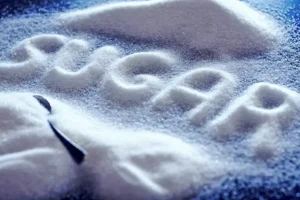
We need vitamins and minerals for essential biological processes like cellular metabolism and regulating inflammatory pathways. Without adequate nutrient status, we can also feel hungrier and crave more foods, leading to increased caloric intake and weight gain. However, most people don’t drink straight alcohol on its own—they’re drinking beer, wine, cider, or mixed drinks, the last of which can be shockingly high in calories. The not-so-simple answer is that, yes, drinking alcohol can probably cause weight gain in many people. However, body weight depends on so many other things that we can’t give a hard-and-fast explanation.
Eat Before you Drink
Several studies suggest that consuming alcohol before or during a meal does not influence the amount of food eaten in that meal, despite increasing the energy density of the meal [5]. Thus, individuals do not appear to compensate for the added does alcohol make u gain weight energy from alcohol in the short-term, and alcohol appears to have little effect on satiety [5]. As with cross-sectional studies, the way by which alcohol intake is measured and categorized likely influences the interpretation of the results.

Alcohol Can Increase Cortisol and Inflammation
Instead, your liver prioritizes breaking down alcohol rather than fat. The body can only metabolize a certain amount of alcohol every hour. How much alcohol you’re able to metabolize is dependent on your age, weight, sex, and other factors.
Does alcohol cause belly fat?
- Alcohol lowers inhibitions, and most people don’t make the wisest food choices when drinking (5).
- In summarizing the recent literature it appears that light-to-moderate alcohol intake is less likely to be a risk factor for obesity than heavy drinking.
- Also, more research is needed to understand exactly how much alcohol can affect weight.
- French et al. [15] measured alcohol frequency ranging from 1–2 times per year to every day, while estimating the number of drinks per drinking day from 1–36.
But keep in mind this is exponentially increased if you’re a heavy drinker, eat bad fattening foods, and aren’t exercising. Although there is evidence to suggest that frequent alcohol intake may predispose to weight gain or obesity over the long-term, this effect is not strongly reflected in the recent research. First, it has been found that alcohol intake increases energy expenditure, likely due in part to the fact that it has a high thermogenic effect [53]. It has also been suggested that some of the energy ingested as alcohol is ‘wasted’, due to the activation of the inefficient hepatic microsomal ethanol-oxidizing system (MEOS). The MEOS is induced through chronic alcohol intake, and the level of induction increases with increased intake [54, 67]. Oxidation of alcohol via the MEOS produces less ATP than oxidation via alcohol dehydrogenase, using the energy from alcohol intake primarily to enhance heat production [37, 54].
What are the other side effects of drinking alcohol?
- A summary of the studies examined in this article, organized by the trend between alcohol and weight gain/obesity can be found in Table 1.
- Many people recognize that they feel puffier after a night of heavier drinking, but that will go away once the alcohol leaves your system and you rehydrate.
- Your body will feel fuller and you’ll boost your metabolism by eating high protein foods.
- Instead, regular heavy drinking may lead to weight gain over time.
Alcohol Affects the Body’s Fat-Burning Capability
- If you’d like to prevent weight gain and still enjoy drinking, try choosing lower-calorie alcoholic beverages and manage how much alcohol you consume.
- If the drinker compensates for the calories in alcohol by decreasing calorie intake from food, this would explain the lack of weight change with moderate drinking.
- Alcohol can also influence hunger via several central mechanisms.
- This inflammation may be made much worse by the things often mixed with alcohol, such as sugary and carbonated liquids, which can result in gas, discomfort, and more bloating.
Health Categories to Explore

Makes It Harder To Get Quality Sleep
- Remember that the highest-calorie drinks are usually those concentrated sugar mixers and fruit juices.
- If you’re looking to lose weight, you may not need to cut out alcohol completely.
